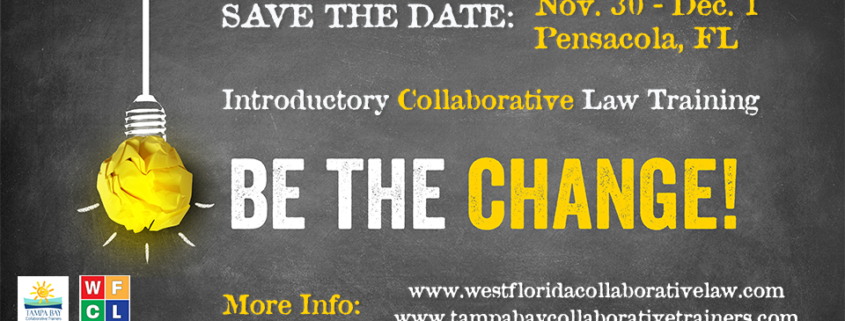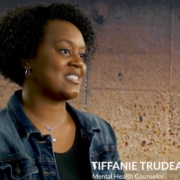Video: Bounds of Advocacy and Collaborative Divorce
Earlier this year, the Florida Bar Family Law Section released a new version of the Bounds of Advocacy. The Bounds of Advocacy promote a higher level of professionalism than the base level required by the Florida Bar.
In the video below, Joshua Jones, a Pensacola family law attorney and president of West Florida Collaborative Law, Inc., discusses the relationship between the Bounds of Advocacy and collaborative divorce. The video is produced by the Florida Academy of Collaborative Professionals. Further, professionals interested in learning to offer collaborative services to client in Pensacola November 30-December 1 can learn more and register here.
A Higher Ethical Standard
Below is a lightly edited transcript of the video:
In Florida, attorneys are governed by a set of rules. We are a self-policing profession. For family lawyers, we have committed to a higher ethical standard, and this is embodied in the family law Bounds of Advocacy.
The Bounds of Advocacy is focused on minimizing the harm done to a family during litigation. It is also focused on helping professionals work better together in family law litigation.
For me, that is very similar to what we do in collaborative law. Both have parallel goals and visions. My perspective is that all family law attorneys should be practicing the collaborative method and offering it as a first option for families.
Bounds of Advocacy and Collaborative Practice
As Jones mentions, one of the goals of the Bounds of Advocacy is to minimize the harm done to divorcing families. This, too, is a goal of collaborative practice.
In collaborative divorce, both spouses have their own separate attorneys. These attorneys are not “opposing counsel.” And the spouses are not “opposing parties.” Rather, both attorneys and both spouses are members of a team that has a purpose of helping the family restructure as peacefully, privately, amicably, and quickly as possible.
Some who have gone through a nasty, traditional divorce may think this is “pie in the sky.” But it works. In fact, 92% of collaborative cases in Florida end in a full agreement between the spouses. There are structural reasons for this.
First, collaborative attorneys, once a collaborative case begins, are barred by statute from fighting in court on behalf of their clients. In fact, if court fighting begins, collaborative attorneys must withdraw. Because of this feature, collaborative attorneys are incentivized to keep the peace and to encourage spouses to be reasonable.
Further, collaborative divorce usually includes a neutral facilitator with a background in family dynamics and childhood development. The facilitator helps spouses focus on the future rather than the arguments of the past. He or she can also help develop a parenting plan for children that is not cookie cutter, but rather tailored for their children’s specific needs.
Choose Your Divorce Attorney Wisely
If you are considering or going through divorce, choose your attorney wisely. Find someone who is familiar with and upholds the Bounds of Advocacy. And make sure you find an attorney who is collaboratively trained.
Adam B. Cordover teaches attorneys, mental health professionals, financial professionals, and mediators how to help families via the collaborative divorce process. In fact, November 30-December 1, he will be teaching an Introductory Interdisciplinary Collaborative Family Law Training in Pensacola. The training is sponsored by West Florida Collaborative Law, Inc. LEARN MORE AND REGISTER BY CLICKING HERE.







